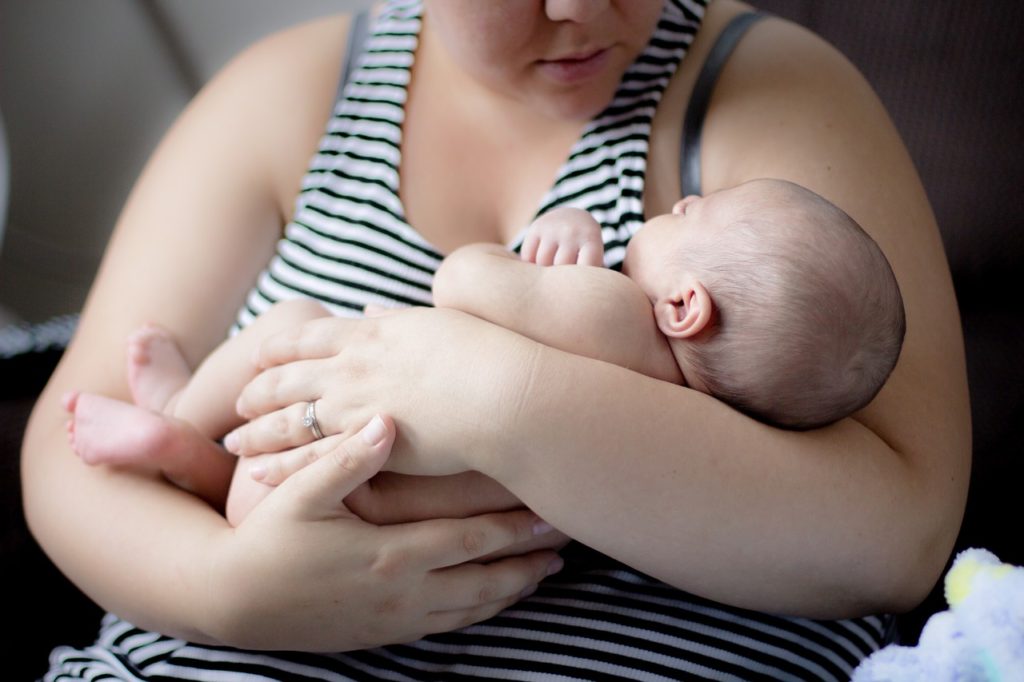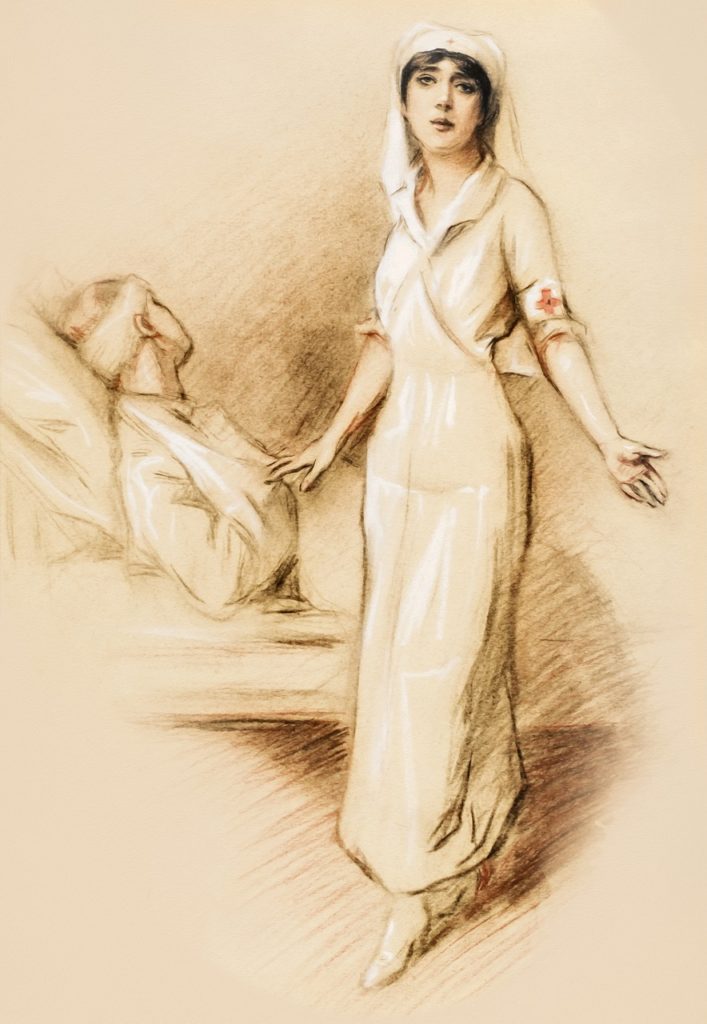|
Getting your Trinity Audio player ready...
|
I was on inpatient service and had already seen most of the patients on my list. I just had to see one more before I could call it a day and rush out just in time to take my daughter to her tennis lesson. I reviewed the patient’s chart to find out that her cancer had spread to her spine, which had incapacitated her to the point that she could not walk on her own and required assistance even for as little as propping herself up in the bed.
I knocked on the door, but there was no response. I walked in and saw her lying in bed, trying to avoid eye contact with me. I began to say, “Hi, my name is Dr. …” I couldn’t finish the introduction because a strong stench entered my nostrils, giving me pause. The crisp white bedsheets were covered with her feces. There was a Styrofoam glass in her right hand that was also smothered with feces. “I’m sorry I was thirsty!” She said in a trembling voice with her eyes filled with embarrassment. “Don’t worry, let me ask someone to help you right away,” I said, trying to fill my tone with empathy rather than judgment.
I walked out of the room, headed right to the nursing station, and explained the situation to her nurse. She appeared swamped with work and busy charting in the computer but sprang up instantly and rushed to the room and, on her way, recruited two fellow nurses to help with the task. I returned to the patient’s room after ten minutes, and she was all freshened up, dressed in a fresh hospital gown, new linen, a pot of flowers, and a bowl of fruit on the table at her bedside with the TV remote and the call bell within her hand’s reach.
I asked myself: Can I ever do for a patient what a nurse does? Never! Then why is it that the role of a nurse is so underrecognized and invisible as compared to a doctor’s?

Ever since I wanted to become a doctor, I wanted to build long-term relationships with my patients and their families. My dad was a pediatrician, and I used to love it when people came up to him randomly to say hi and thanks because he took care of their kids. I love it when a patient tells everyone that they are my patient and want me to be part of any decision they make. As a doctor, I get this recognition every day, but my question is that if I had become a nurse, would I be given the same recognition even though I would have taken care of my patient with as much compassion and more “hands-on” care?
Nurses are respected but are given nowhere near as much credit as doctors. In my mind, if the hospitals were households and all the patients were children, the value of doctors would be similar to that of fathers, and the value of nurses would be akin to that of mothers. Fathers have their own role, which is indispensable, but it is still dwarfed compared to what a mother’s role is for a child.
The roles of mothers and fathers have blended quite a bit in the modern world, but there is no denying that up until a few decades ago and still in a major part of the world, the roles are well defined. The traditional “stay-at-home-mom” gives up everything primarily to nurture her children. She wakes them up, makes sure that they brush their teeth, wear nicely ironed and beautiful clothes, feeds them breakfast, sends them to school with a packed lunch, makes sure they are playing with their friends and doing their homework, teaches them manners on the dinner table and tucks them into bed well in time to be ready and prepared for the next day. The “working mom” is doing all of this and on top of that is earning a living as well. Having a job gives you recognition in the form of diplomas and paychecks, but the childrearing and housework are often invisible, which becomes apparent only if it is not done. For example, if you see a healthy and happy child, you will seldom marvel at the great job a mom is doing, but if you see a neglected child, you will instantly point towards the inadequacies of the mother.

Similarly, at the hospital, the nurse is the one who is at the patient’s bedside around the clock. When the patient has to go to the bathroom or needs help to sit up in a chair, he or she calls the nurse. The nurse is the one who is changing the diapers for the elderly; she is the one cleaning the sputum and the spilled urine; she is the one holding the patient’s hand and stroking his hair while he is having a painful procedure done. She is the one arranging the flowers and picture frames in the room. She is the one administering the medications when the patient is in pain or nauseous. She is the foremost advocate for the patient. She is at the bedside when the patient is taking his last breath, and she is the one to call the doctor to pronounce him dead after having first witnessed and confirmed it herself.
But yet, the doctor takes most of the credit. Why is that? Just because the doctor spent more years training and passed some more difficult exams and gets a bigger paycheck? Fine, the doctor is making some of the “big decisions” in a patient’s journey, but the nurse is the one who is holding the patient’s hand and delivering the bedside hands-on care so selflessly.
When a patient is asked whose patient they are, they will always take the doctor’s name. I wish to see a day when they take the nurse’s name as a response to that question. When I ask my nurse to see a patient, she says, “Hi, my name is Nancy. I am Dr. Imran’s nurse.” I hope to see a day when I say, “Hi, my name is Dr. Imran. I’m the doctor working with your nurse.”

Also, as the gender roles in society are increasingly blending, we have not yet seen that change when it comes to the noble profession of nursing. A few decades ago, most of the doctors were males, but now by many estimates, half are males and the other half females. I hope to see more males becoming nurses where only one out of ten nurses is a male.
This article was published on KevinMD.com on May 6, 2021
Please comment below or contact me here


Excellent read Farhan! I would like to see more doctors showing the same kind of genuine respect for the nursing profession as you do.
Thank you Aimen.
Marvelous feelings shown up here. Love you 😊
I’m a male nurse, working in Pakistan. Hats off to you 🎉🎉
Thank you for the work that you do Nasir.
Beautifully written brother. Stay blessed
Thank you
This is so beautifully written and is a wonderful way of appreciating the role of the nurse. Thank you for the lovely words.
Thank you
That’s how nurses and doctors differ. Drs need the recognition whereas a nurse feels called to the profession to help others through difficult times. I’ve met a handful of Drs who treat their nurses amazing, but it is not the majority. I think Drs are of a different breed. Did you thank all your nurses this past week personally? Say hello?
Sorry, I respectfully disagree. I’ve been in academic practice for greater than 20 years. Nurses ( at least in the USA) have been empowered far beyond their usefulness, and education. e.g.-Nurses week, nursing awards, nurses are “ like a mother to a a child”, nurses who think they should practice independently as if they were doctors without the training or the true responsibility or medico legal culpability, nurses who get PhDs just so that they can be called “Dr”, nurses who “live”to give resident doctors grief. Please don’t misunderstand me, nurses play a very important part in patient care but certainly no where near the extent that you describe.
First of all, doctor means teacher. PhD is the true doctor. Doctor doesn’t mean physician. Physicians just took the word a couple hundred years ago.